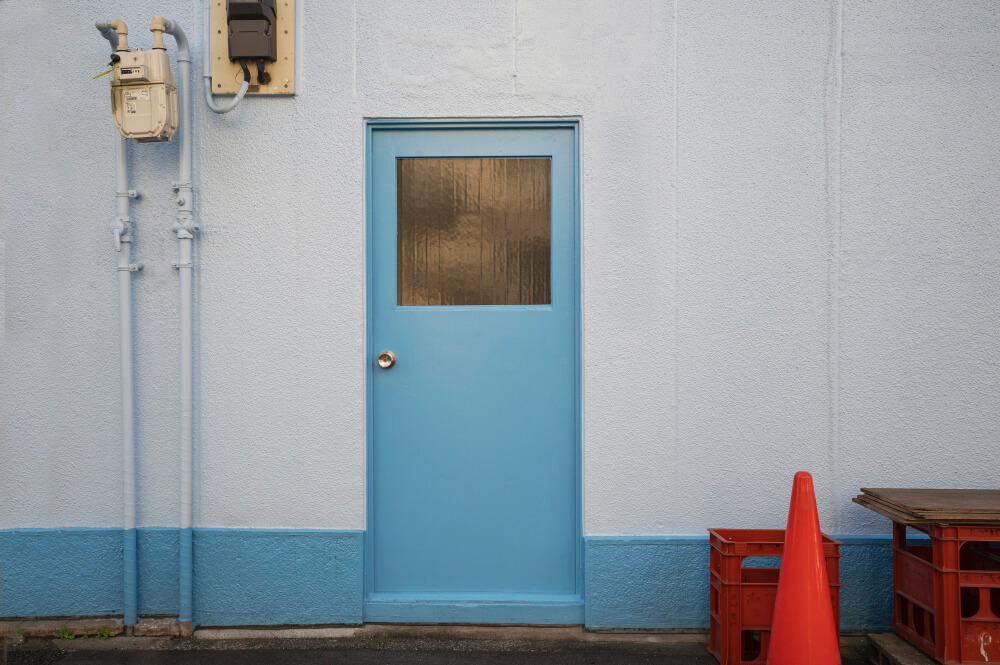How schools use ‘self-reliance’ to justify abandoning disabled kids.
They told me my daughter needed to build her tolerance for the classroom without support. They waxed endlessly about how she wouldn’t want support in high school—ignoring that my daughter had been very clear that she does, in fact, want support. They said it with that particular tone of educational authority—the one that suggests you’re being difficult if you disagree and overprotective if you insist your child deserves better.
Independence. The holy grail of educational outcomes. The excuse that justifies every withdrawn support, every premature fade, every moment a child is left to struggle alone in the name of “preparing them for the real world.”
It’s bullshit. And it’s time we called it what it really is: a weapon designed to justify educational abandonment.
Coded language for ‘we don’t want to fund your kid’
Here’s what independence dogma actually means in practice: your child doesn’t get the educational assistant they need because “we don’t want them to become dependent.” Support is withdrawn because “they need to learn to self-advocate.” Your child is excluded from accommodations because “independence means learning to cope without support.”
This isn’t pedagogy. This is austerity dressed up in developmental psychology buzzwords.
The independence narrative allows schools to frame the withdrawal of support as a gift. They’re not cutting resources—they’re building character! They’re not abandoning your child—they’re fostering resilience! The cruelty becomes kindness through the magic of reframing, and if you object, well, clearly you don’t understand child development.
But here’s the thing about real independence: it’s built on a foundation of appropriate support, not the absence of it. You don’t teach someone to swim by throwing them in the deep end and walking away. You don’t build confidence by manufacturing failure. And you don’t create self-reliance by systematically removing every scaffold a child needs to succeed.
Presumed competence meets institutional disgust
When I insist that my child receive appropriate support, I watch the micro-expressions shift across the faces in the room. The slight recoil. The pursed lips. The exhale that says “not this again.” Because presumed competence paired with advocacy for appropriate accommodation threatens the entire independence mythology. There is a tacit rule that one must appear broken to receive support and thriving means that you don’t need support.
Presumed competence says: this child can learn, achieve, and thrive. Independence dogma says: this child must learn to cope with less. The two cannot coexist in a system designed around scarcity and managed through the careful rationing of hope.
So when I refuse to accept the false choice between competence and support—when I insist my child can be both capable and accommodated—I become the problem. Not the underfunded system. Not the lack of training. Not the punitive policies. Me. The mother who won’t shut up and accept that her child should suffer.
-
Disgusted by my advocacy
I have become hyper-attuned to the particular curl of a staff member’s lip, the slight recoil in their chair, the clenched tone when I insist—again—that my child…
Toxic positivity: reframing abandonment as love
The independence narrative requires toxic positivity to function. Every failure must be reframed as a learning opportunity. Every exclusion becomes preparation. Every moment of distress is reconceptualised as growth.
“We’re helping them build resilience,” they say, as your child melts down from overwhelm.
“They need to learn to advocate for themselves,” they explain, as they ignore your child’s requests for help.
“This will serve them well in the future,” they insist, as they watch your child’s confidence crumble in real time.
This is the emotional choreography that keeps the independence scam running. The system requires parents to convert their grief into gratitude, their anger into appreciation, their protective instincts into agreement. We must smile as we watch our children struggle unnecessarily, because that struggle has been rebranded as preparation for adulthood.
But toxic positivity isn’t just irritating—it’s a form of gaslighting that prevents us from naming what we’re witnessing. How can you complain about abandonment when it’s been packaged as empowerment? How can you object to harm when it’s been marketed as help?
-
On toxic positivity, rationed support, and the betrayal of collaboration
“At the head of the table is almost always the school principal. Not a neutral facilitator, but a gatekeeper balancing limited resources, district priorities, and political pressures.”…
The gendered nature of independence enforcement
Independence dogma doesn’t target all parents equally. It specifically punishes mothers—particularly neurodivergent mothers—who refuse to accept that their children should be left to fail alone.
When fathers are involved in advocacy, they’re often seen as reasonable, strategic, supportive. When mothers show the same level of engagement, we become helicopter parents, overprotective, unable to let go. The very qualities that would be praised in a father—attention to detail, persistence, emotional investment—are pathologised in mothers.
This isn’t coincidental. Independence dogma relies on convincing mothers that their protective instincts are harmful, that their knowledge of their child is less valuable than institutional expertise, that their refusal to accept educational abandonment is a form of maternal dysfunction.
The message is clear: good mothers step back. Good mothers don’t interfere. Good mothers trust the system to know what’s best, even when that system is demonstrably failing their children.
But what they don’t want us to realise is that our refusal to step back—our insistence that our children deserve better—threatens the entire economic model of education under austerity. If every child got the support they actually needed, the system would have to be fundamentally restructured. So instead, they convince us that needing support is shameful, that asking for accommodation is excessive, that our children’s struggles are character-building rather than preventable.
-
Epistemic silencing of disabled children’s primary caregivers
Epistemic silencing in BC schools discredits mothers’ knowledge, reframes advocacy as aggression, and erases disabled children’s pain, leaving families punished for truth.
The real world versus the school world
Perhaps the most insidious aspect of independence dogma is how it misrepresents what independence actually looks like in adult life. They tell us they’re preparing our children for “the real world”—a world where, apparently, successful adults never ask for help, never need accommodation, never rely on systems or supports.
But that’s not the real world at all. The real world is full of interdependence. Successful adults have assistants, use technology, arrange their environments to support their productivity, and advocate for what they need. They go to the bathroom when they need it, and they don’t have to ask for permission. They don’t succeed by learning to cope with inadequate support—they succeed by building systems that work for them.
What schools call independence is actually learned helplessness. They teach children that their needs are excessive, their requests for support are burdensome, their struggles are personal failings rather than environmental mismatches. Then they act surprised when these children become adults who don’t know how to advocate for themselves or arrange appropriate accommodations.
Real preparation for adulthood would teach children to identify their needs, communicate them clearly, and expect reasonable accommodation. It would build their confidence in their right to support rather than their capacity to suffer in silence.
The cost of complicity
Every time we accept independence dogma—every time we nod along when they tell us our child needs to learn to cope with less—we participate in our own children’s educational abandonment. We become complicit in a system that profits from their struggle and calls their pain acceptable.
I understand the pressure to comply. The exhaustion of fighting. The way the system wears you down until accepting crumbs feels like collaboration rather than surrender. I’ve felt the pull of that toxic positivity, the relief of believing that maybe they do know best, maybe this struggle is building character, maybe independence really is the goal.
But I’ve also seen what happens to children who are forced to be independent before they’re ready, without the supports they need, in environments that weren’t designed for them. They don’t become resilient. They become resigned and exhausted. My son has been in bed for 6 months because of their bullshit.
The intersection of harm
The three mechanisms work together with devastating precision. Epistemic silencing discredits mothers who challenge the independence narrative. Performative accessibility creates the theatre of support while actually withdrawing it. And disgust reactions punish parents who refuse to accept educational abandonment as good parenting.
When I insist that my child deserves both presumed competence and appropriate support, I’m challenging all three systems simultaneously. I’m refusing to be silenced, rejecting the performance of inclusion, and persisting despite their revulsion. This makes me dangerous to a system that requires parental compliance to function.
The independence dogma isn’t about child development. It’s about maintaining a system where the most vulnerable children receive the least support while parents are convinced this abandonment serves their children’s best interests.
-
The goodwill ledger: how schools calculate inclusion allotments
Schools in British Columbia keep an invisible ledger—one that tracks not just budgets, but emotions, tone, and perceived worthiness. Families who ask too clearly, too often, or on behalf of more than one child are quickly marked as overdrawn. This essay continues the…
Reclaiming real independence
True independence isn’t the ability to suffer alone. It’s the knowledge that you deserve support, the skills to identify what you need, and the confidence to advocate for appropriate accommodation. It’s understanding that needing help isn’t a moral failing—it’s part of the human condition.
Real independence means knowing that your struggles aren’t character flaws to be overcome through willpower, but challenges to be addressed through environmental modification, support systems, and reasonable accommodation. It means understanding that the goal isn’t to need less—it’s to build systems that respond appropriately to what you need.
For our children, this means teaching them that their needs are valid, their requests for support are reasonable, and their right to accommodation is non-negotiable. It means modelling advocacy rather than acquiescence, persistence rather than politeness, and the radical belief that they deserve to thrive rather than merely survive.
The call to resistance
So fuck your independence dogma! Fuck the toxic positivity! Fuck the disgust reactions that punish us for refusing to disappear. Our children don’t need to learn independence through educational abandonment. They need appropriate support, presumed competence, and adults who refuse to accept that their struggles are inevitable rather than preventable.
The system wants us to believe that good parenting means stepping back, that love means letting go, that independence requires isolation. But real love means showing up. Real support means staying present. And real independence is built on a foundation of appropriate accommodation, not the absence of it.
-
The right amount of agony in BC schools
After watching my children endure eight years of institutional failure, eight years of exclusion disguised as discipline and support withheld under the language of inclusion, I have…












